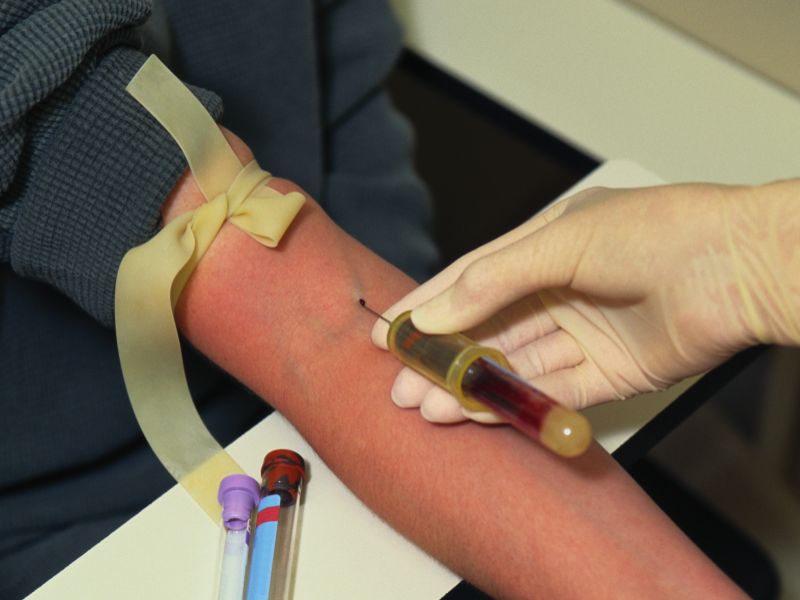
SUNDAY, July 28, 2019 (HealthDay News) -- A blood test may seem like a simple thing, but it can do so much. It can diagnose disease, reveal how well your organs work and whether a course of treatment is effective or not, experts say.
Some blood tests require patients to fast before the blood is drawn. It's crucial that you avoid eating before such tests, which require blood that is clear of nutrients, such as fats and sugars.
Glucose and lipid testing are the most common types of fasting blood tests, said Carole Andrews of Penn State Health in Hershey, Pa., where she's a supervisor in the department of pathology and laboratory medicine.
"The amount of fats and glucose [sugars] will increase in the blood if a person has recently eaten," Andrews explained in a Penn State news release. "This will affect the results of these specific tests."
You may also wonder why technicians take so many blood samples.
Vials used to collect samples may contain additives that keep blood from clotting before the lab can test it. Tubes are color-coded according to the type of test. For example, a purple-colored vial is used for a blood count and a green-colored vial may be used for a chemistry profile, Andrews said.
How much blood is collected depends on the number and type of tests ordered by your doctor.
And there's no need for concern if multiple vials of blood are taken. Most people have between 4,500 to 5,700 milliliters of blood.
"Even if you had 10 tubes of blood taken, that's less than 60 milliliters," Andrews said. "It's not going to make an impact because your body is designed to replace what is lost."
You can make the process easier by drinking plenty of fluids beforehand, she suggested. This will make it easier for the technician to poke into a vein.
"Also, it is easier if the patient is relaxed and comes in with a good attitude," Andrews said. "If they tense up too much, it can make the venipuncture difficult."
More information
The U.S. National Heart, Lung, and Blood Institute has more on blood tests.
Back

The news stories provided in Health News and our Health-E News Newsletter are a service of the nationally syndicated HealthDay® news and information company. Stories refer to national trends and breaking health news, and are not necessarily indicative of or always supported by our facility and providers. This information is provided for informational and educational purposes only, and is not intended to be a substitute for medical advice, diagnosis, or treatment.






